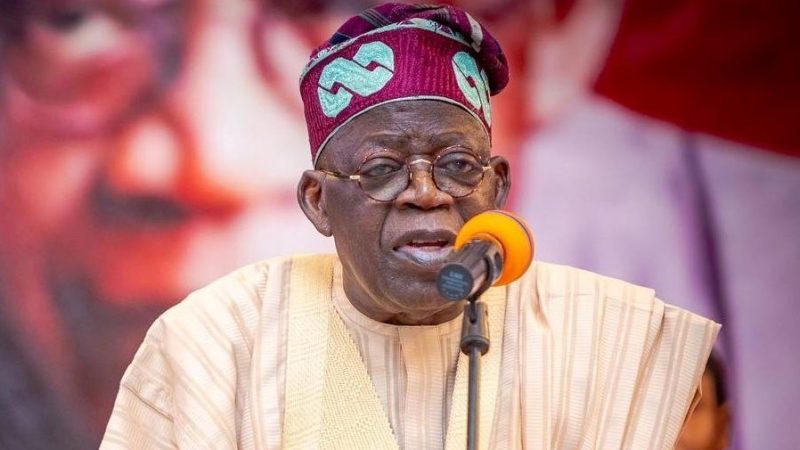The Rumor Mill in Overdrive: Lil Wayne Death Hoax Debunked

In the fast-paced world of social media and instant news dissemination, celebrities often find themselves at the center of rumors and speculations. Recently, one such rumor took the internet by storm, leaving fans in shock and disbelief. The rumor that swept through various online platforms suggested that the iconic rapper, Lil Wayne, had met an untimely demise. However, as the dust settles, it becomes evident that this was yet another case of a celebrity death hoax. In this article, we will explore the origins of the rumor, the swift spread of misinformation, and the reassurances from reliable sources that confirm Lil Wayne is very much alive.
The Genesis of the Rumor:
The Lil Wayne death hoax began as a seemingly innocent post on social media, rapidly gaining traction and leaving fans in a state of panic. Several platforms, including Twitter, Facebook, and Instagram, were flooded with posts claiming that the Grammy-winning rapper had passed away. The lack of concrete details and credible sources in these initial posts should have raised suspicions, but the sensational nature of celebrity news often overshadows critical thinking.
Spread of Misinformation:
Within hours, the rumor snowballed into a full-blown social media storm. The hashtag #RIPWeezy started trending worldwide as fans and followers expressed their grief and condolences. Memes, tributes, and messages of disbelief flooded the internet, creating an atmosphere of mourning for a rapper who, at that point, was very much alive. The rapid spread of misinformation showcased the power and pitfalls of social media, where false news can gain momentum before accurate information has a chance to catch up.
Celebrity Reactions:
As the rumor gained momentum, several celebrities and fellow musicians took to social media to express their shock and sorrow. The outpouring of condolences from verified accounts further fueled the speculation, with fans interpreting these messages as confirmation of Lil Wayne’s death. It highlights the responsibility that comes with being in the public eye, as even well-intentioned expressions of sympathy can inadvertently contribute to the spread of misinformation.
Official Statements and Debunking the Hoax:
Amidst the chaos, Lil Wayne’s representatives and official channels moved swiftly to address the rumors. A statement was released, categorically denying the claims and assuring fans that the rapper was alive and well. This official communication aimed to quell the rising panic and bring an end to the unfounded rumors. However, in the age of digital misinformation, dispelling rumors can be a challenging task, as fake news often travels faster than the truth.
Impact on Fans:
The Lil Wayne death hoax had a profound impact on fans who found themselves caught in a whirlwind of emotions. The rollercoaster from mourning the loss of an idol to the relief of discovering it was all a hoax left many feeling disoriented and questioning the credibility of online information. The incident serves as a reminder of the need for critical thinking and fact-checking, even in the age of instantaneous news.
The Anatomy of Celebrity Death Hoaxes:
Celebrity death hoaxes are unfortunately not a new phenomenon. Over the years, several high-profile figures have fallen victim to false reports of their demise. The reasons behind these hoaxes vary, ranging from malicious intent to social media pranks gone awry. The Lil Wayne incident underscores the importance of verifying information before sharing and highlights the potential consequences of spreading unverified news in the digital age.
Social Media Responsibility:
The Lil Wayne death hoax also raises questions about the responsibility of social media platforms in curbing the spread of false information. While platforms like Twitter and Facebook have implemented measures to combat misinformation, the sheer volume of user-generated content makes it challenging to police every post. The incident serves as a call to action for both users and platforms to prioritize accuracy over sensationalism.
Celebrity Privacy and Public Speculation:
The constant scrutiny that celebrities face in the public eye makes them vulnerable to rumors and speculation, often without regard for their personal lives. The Lil Wayne death hoax sheds light on the delicate balance between a celebrity’s public persona and their right to privacy. As fans express concern and curiosity about their favorite stars, it is essential to remember that celebrities, like everyone else, are entitled to their personal space and well-being.
Conclusion:
The Lil Wayne death hoax, though proven false, serves as a cautionary tale about the perils of misinformation in the age of social media. It highlights the need for responsible sharing, fact-checking, and critical thinking when confronted with sensational news. As the rapper continues to thrive in his career, fans are reminded of the importance of separating fact from fiction and appreciating the artistry of their favorite celebrities without succumbing to the pitfalls of online rumors. The incident also prompts a broader conversation about the ethical responsibility of social media platforms and the public in ensuring the accuracy of information in the digital age.
Q1: Is Lil Wayne really dead? No, Lil Wayne is not dead. The recent rumors circulating on social media about the rapper’s demise are false. Official statements and reliable sources confirm that Lil Wayne is alive and well.
Q2: What sparked the rumors of Lil Wayne’s death? The rumors began with an unverified post on social media, lacking credible sources or concrete details. The misinformation quickly spread across various platforms, leading to widespread panic among fans.
Q3: Did any celebrities confirm Lil Wayne’s death? Several celebrities expressed their shock and condolences on social media, contributing to the spread of the rumors. However, these messages were later revealed to be based on the false information, highlighting the dangers of misinformation in the digital age.
Q4: How did Lil Wayne’s representatives respond to the rumors? Lil Wayne’s representatives swiftly issued an official statement denying the rumors and reassuring fans that the rapper is alive and in good health. The statement aimed to put an end to the unfounded speculation and ease concerns among fans.
Q5: Why do celebrity death hoaxes happen? Celebrity death hoaxes can occur for various reasons, including malicious intent, social media pranks, or even as a form of attention-seeking. The Lil Wayne incident is a reminder of the prevalence of such hoaxes and the need for responsible information sharing.
Q6: What was the impact of the death hoax on Lil Wayne’s fans? The death hoax had a profound impact on fans who initially believed the false information. The emotional rollercoaster from mourning to relief underscored the importance of critical thinking and fact-checking in the age of instant news.
Q7: How can fans verify the authenticity of celebrity death rumors? Fans should rely on official statements from reliable sources, such as the celebrity’s representatives or reputable news outlets. Additionally, it’s essential to exercise caution before spreading unverified information and to be aware of the prevalence of celebrity death hoaxes on social media.
Q8: What role do social media platforms play in preventing the spread of false information? Social media platforms have implemented measures to combat misinformation, but the sheer volume of user-generated content makes it challenging to monitor every post. Users, as well as platforms, have a shared responsibility to prioritize accuracy over sensationalism and to report or flag false information.
Q9: How can we balance celebrity privacy and public curiosity? The Lil Wayne incident raises questions about the delicate balance between a celebrity’s public persona and their right to privacy. While fans may express concern and curiosity about their favorite stars, it’s crucial to respect their personal lives and well-being.
Q10: What can we learn from the Lil Wayne death hoax? The incident serves as a cautionary tale about the perils of misinformation in the digital age. It emphasizes the importance of verifying information before sharing, practicing critical thinking, and being mindful of the ethical responsibility of social media platforms and the public in ensuring the accuracy of information.






